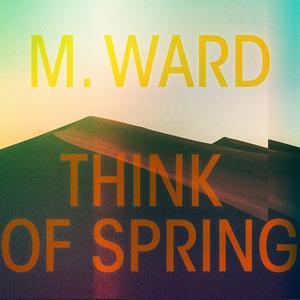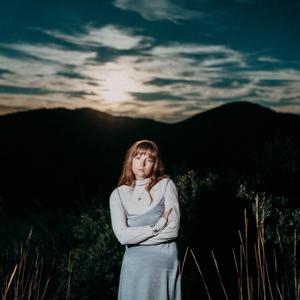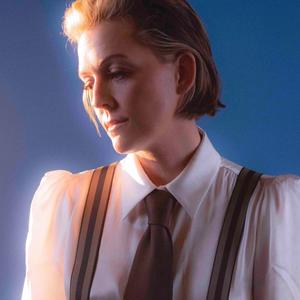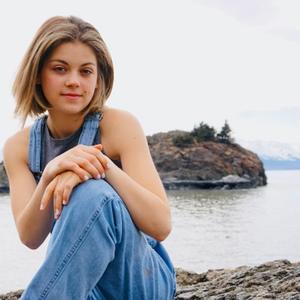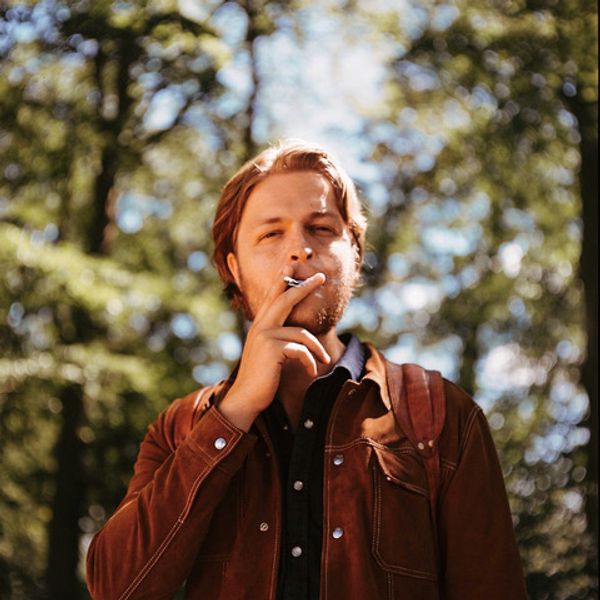




Link copied

"It was near the snow-peaked mountains, only yesterday, when you told me that our lives would change". So begin the opening lines to Paul Bond’s Sunset Blues, the quietly captivating debut mini-album from the Dutch singer songwriter.
A clutch of seven songs that deal with the subject of becoming a father - in particular the moment he finds out he is about to become one – and all the happiness, confusion, fear and existential anxiety that comes with starting out on what the writer Naomi Wolf calls "the long hard path of the saints".
"Your head is in the clouds, and your mother’s oh so proud", he sings, with the denouement, "but I’m not sure I’m ready for this yet". It’s a refreshingly thoughtful and honest perspective on impending parenthood and the way the whole world shifts before you.
Collaborating with mastering engineer Ed Brooks - based in Seattle and best known for his previous work with Fleet Foxes, Pearl Jam and Death Cab for Cutie - Bond has crafted an understated masterpiece that perfectly captures the conflicting emotions of one of life’s most consequential but fleeting moments.
Whether it’s the wistful catchiness of 'Same Song, Different Groove', the sleepy closing time swing of 'The Young And Cheap' or the breezy highway shuffle of 'Season Of The Acorn', the album is a testament to his love of sweetly constructed pop melodies and gentle turns of phrase.
Taking his inspiration from writers like Hemingway, William Carlos Williams, Ezra Pound and F. Scott Fitzgerald, Bond’s songs are built on his love of literature, his travels to America and Canada and his English Literary MA Degree, and his gentle Americana-soaked folk songs are reminiscent of Colin Blunstone, Jackson C Frank, James Taylor and Iron and Wine.
Holler spoke to Paul Bond about growing up in Holland, going solo and the inspiration behind Sunset Blues.
Where are you from and how has that influenced your music?
My hometown is a small fisher town in the north of Holland called Volendam, but I’ve been living in Amsterdam for the past 8 years. Volendam is known all over the world for its “paling" (eel) and photogenic harbour, but a lot of people also know Volendam for its musical legacy. The Cats were from Volendam. They were great, and toured all over the planet, and everyone in Volendam either sings or plays guitar. It’s true!
Volendam influenced me in a lot of ways: I used to sing in the famous boys choir The Zangertjes van Volendam, where I learned almost everything there is to know about harmony, arrangements, singing and playing counterpoint. My brother has his King Forward Records studio in the old Cats studio, the place where they recorded all their hits. Right next to him is the Arnold Muhren Studio, where the bass player of the Cats built a huge new studio that is well known throughout the Netherlands.
Finally, PX is the theatre where all young talent starts off, and where I played my first shows at the Songwriters Guild. So Volendam played a huge role in my musical upbringing! When I moved to Amsterdam a lot of new perspectives and playing opportunities opened up, and I learned so much at the Amsterdam Songwriters Guild, and all the cool venues that Amsterdam has. Amsterdam definitely feels like it’s cooking, and there’s always some band playing somewhere, or a musician drinking a beer at a random bar.
What did you listen to growing up?
My dad is a huge Beatles fan, so we listened to a lot of their records on Sunday mornings. But that was more background noise than active listening. I remember the first time I really “heard” ‘Norwegian Wood’, even though I must have listened to it a hundred times already. My world was never the same afterwards. The Beatles were and are this huge presence in my life, and I feel blessed to live in a time where I am able to know, listen and watch the Beatles.
The song I listened to right after ‘Norwegian Wood’ was ‘The Joker’ by the Steve Miller Band. They were huge for us, as well as Crowded House, and especially their 1991 album Woodface. Paul McCartney’s All The Best was one of our holiday CDs. Playing 'Listen to What the Man Said' immediately teleports me to camping in Italy or Southern France.
Then in the choir where I used to sing there was a lot of classical music: Haydn, Mozart, Schubert, and all those household names. The first songs I sang when I entered the choir were ‘Dona Nobis Pacem’ and the beautiful ‘Panis Angelicus’ by César Franck.
You’ve got an English Literary MA degree - which writers have influenced your songwriting?
Ernest Hemingway, Ezra Pound, T.S. Eliot and Gertrude Stein influenced me profoundly. In my opinion, the modernist approach to literature and text is second to none in terms of musicality. In my lyrics I attempt to convey the same emotional and philosophical sensation that these writers offer me.
Modernist poetry and literature fit music so well, because like poetry, music (or at the least the music I make) requires structure and knowledge to understand where its opportunities lie, how you can change it or redirect it for the better. More importantly, the Modernist approach to the treatment of the “thing” and experience is direct and brief, which is exactly what the scope of most songs is.
A haiku, or a Pound Canto, approaches music much better than Tolstoy’s Anne Karenina for instance. After Modernism, I think Beat poetry is best capable of doing the same thing. I like their treatment and application of extreme or mundane nouns, something which most lyricists nowadays are afraid to do.
How easy does writing songs come to you?
I am currently working on a new record, with a set date for entering the studio, and working with a deadline has certainly improved productivity. After releasing my EP I had a dry spell, when it felt like I would never write a song again. Kind of depressing, but now I am writing one nearly every day. I just have to!
So I guess it comes easy, but I never try to force it, except when an idea suddenly enters my mind. Then I feel I have to stay in that flow and have to finish it as soon as possible. But committing to a dry spell is better than forcing insipid songs out of thin air. When the writing doesn’t come, I usually go out of my way to discover as much new music as I can.
The songs on ‘Sunset Blues’ are often about becoming a father, is this autobiographical?
This is certainly autobiographical. I became a father in April 2020, and I wrote and recorded all the songs right before that. I was feeling so many things: fear for the future, excitement for the unknown, and great uncertainty about who I was and what I was capable of - if I was even responsible enough to carry the huge responsibility of raising a human being in this world. "What the hell do I know?”… So I bundled all those feelings into seven songs, and it kind of became a Polaroid picture of my life at a specific point in time; of how I was feeling when my life was about to undergo this huge change.
You’re also known for being in the band Dandelion. How has it been different being on your own for this album?
We had a blast recording two full-length albums, several EPs and other singles, and our final album Laika, Belka, Strelka was released right before Covid hit, so we never got a chance to finish that tour. Also, we had been going in different directions musically and career-wise. Two changed jobs, three of us became fathers, and the bass player is becoming a doctor. So priorities certainly shifted in the band, while I was still writing and living for the music.
While I miss the joy of playing together, and playing with friends, going solo has been great. I make all the decisions, there are no democratic sacrifices of vision, and I am the only person responsible when something goes wrong. Also, in the studio, instead of discussing whether a song should or should not be played, I worked with a different band that just aimed to get the song done. Make it work, no matter what. So it has been liberating so far.
What was your favourite song to write on Sunset Blues?
‘Sunset Blues’ was one where I started writing the opening riff and chords here on my balcony in Amsterdam, then I finished the chorus in New Orleans in a hostel, and the lyrics came almost immediately after my girlfriend told me she was pregnant in Greece. So that song took a really long time, but carries a lot of emotions and memories for me. Great fun to write!
Who would be your dream collaboration?
I would have to say Paul McCartney, just the idea of being in the studio with such a legend would be huge. More realistically, I would love to have Sam Beam (Iron & Wine) produce my next album.
What’s next for you?
In February I will lock myself into a cabin in the woods to record my next album. What I am about to tell you is still secret, but it will be a marriage of literature and music. I will write a song for each short story in Hemingway’s debut short story collection In Our Time. The idea is to make a very acoustic, and sparsely arranged record, in the tradition of Bon Iver, Seven Swans by Sufjan Stevens, and Our Endless Numbered Days by Iron & Wine. It’s going to be cool!
Sunset Blues is released on out now on the Concerto Records label, the legendary Amsterdam record store, on both 10” vinyl and CD.


